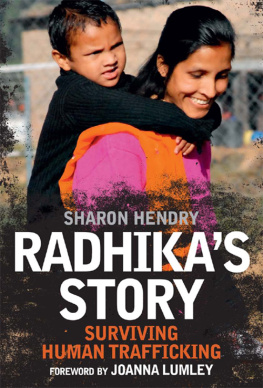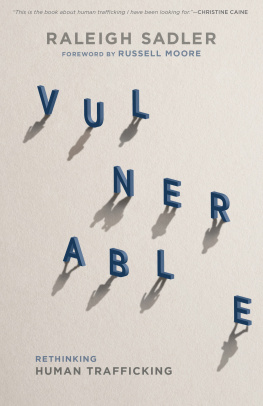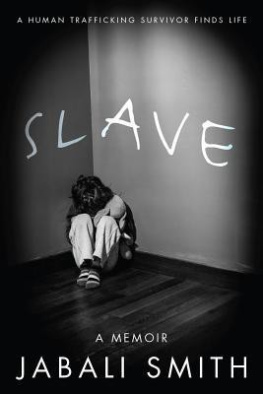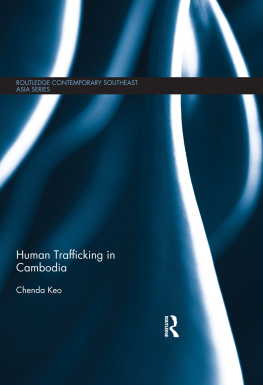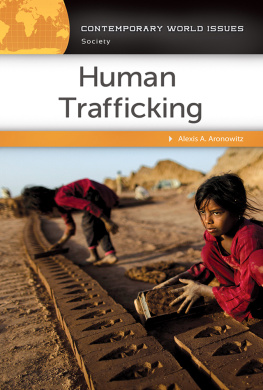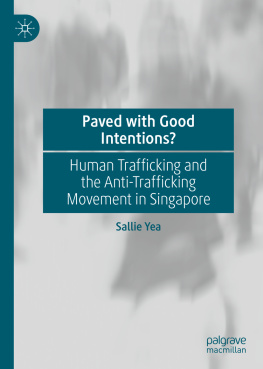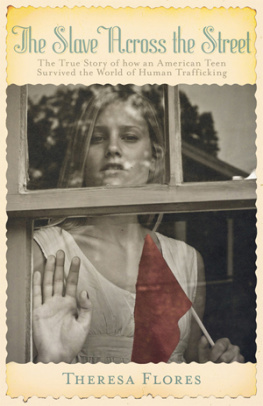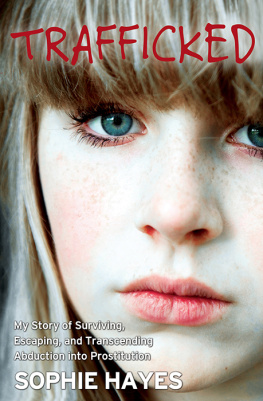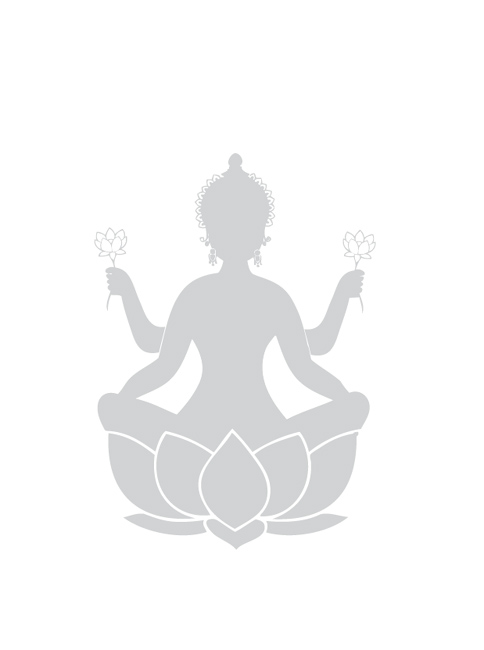SHARON HENDRY was born in Somerset. She now divides her time between there and London, where she lives with her eight-year-old son, Daniel. She is a senior feature writer on the British tabloid newspaper, The Sun, where she has worked for over a decade.
Her work has involved exposing international adoption rackets, tracking paedophiles in Cambodia and uncovering a plot to kill Russian dissident Boris Berezovsky in London.
Radhikas Story is her first book.
To my adored late father, Robert Fairs Hendry, my inspirational mother, Ina, and my courageous son, Daniel. You have all taught me to give voices to those who are silent. Thank you.
SHARON HENDRY
RADHIKAS STORY
SURVIVING
HUMAN TRAFFICKING
Published in 2010 by New Holland Publishers (UK) Ltd
London Cape Town Sydney Auckland
www.newhollandpublishers.com
Garfield House, 8688 Edgware Road, London W2 2EA,
United Kingdom
80 McKenzie Street, Cape Town 8001, South Africa
Unit 1, 66 Gibbes Street, Chatswood, NSW 2067, Australia
218 Lake Road, Northcote, Auckland, New Zealand
Text copyright 2010 Sharon Hendry
Foreword copyright 2010 Joanna Lumley
Copyright 2010 in photographs: see pages
Copyright 2010 New Holland Publishers (UK) Ltd
Sharon Hendry has asserted her moral right to be identified as the author of this work.
All rights reserved. No part of this publication may be reproduced, stored in any retrieval system or transmitted, in any form or by any means, electronic, mechanical, photocopying, recording or otherwise, without the prior written permission of the publishers and copyright holders.
A catalogue record for this book is available from the British Library
ISBN 978 1 84773 725 0 (Print)
ISBN 978 1 78009 036 8 (ePub)
ISBN 978 1 78009 037 5 (Pdf)
Publisher: | Aruna Vasudevan |
Editor: | Scala Quin |
Inside Design: | 2M design Cover |
Design: | Madeline Meckiffe |
Production: | Melanie Dowland |
Human trafficking crosses cultures and continents. All of us have a responsibility to bring this practice to an end.Through partnerships, we can confront it head-on and lift its victims from slavery to freedom.
Hillary Clinton, US Secretary of State, 2010
Contents
List of Illustrations
Photo section
Acknowledgements
I would like to thank The Sun and its three successive editors David Yelland, Rebekah Brooks (now CEO of News International) and Dominic Mohan for giving me the opportunity to do the job of my dreams every single day.
I am also indebted to my co-pilot Elisha Shrestha, of Maiti Nepal, translator, fixer and Nepalese history and language expert extraordinaire I couldnt have done it without you.
Thanks also goes to my publisher, Aruna Vasudevan: your patience with a novice author has been exemplary.
Anuradha Koirala needs a very special mention also for welcoming me into her wonderful shelter and allowing me to witness an inspirational legend at work.
Finally and most importantly, I would like to extend my heartfelt gratitude to Radhika herself. Your story moved me to tears when you first shared it with me, sitting cross-legged on a lawn outside Maiti Nepal on a humid July afternoon in 2009. I will never forget your courage and dignity or the extraordinary love you possess for Rohan. My wish is that one day he will read your story and know this, too.
Foreword
Joanna Lumley
At first you might think that you are hearing a story from a desperate writer of soap operas; there is too much horror here, too many cruelties and indignities, rampant injustice, almost unbelievable courage and yet it is all true, every word of it; and not only true of Radhika, but of thousands of women and girls like her.
In an age where we congratulate ourselves that slavery has been overthrown and that women have rights which are upheld, these stark facts stare us in the face: many women have never been more abused than they are today, right now, this minute, in this tiny world across which we can email in an instant. And yet, this is not a story from another century, although it feels as though it comes from the Dark Ages. This testimony carries a message that will ring true for all time; that bravery and love can counterbalance the nightmares contained within it.
Nepal and India, where Radhikas story takes place, are places of extremes. Beauty and disease, desperate poverty and a surfeit of riches, hunger and excess jostle with each other, making life for their peoples a constant struggle. All manner of criminal activities thrive, not least enforced prostitution and the trafficking of women and children.
The damage and destruction caused by these activities are almost beyond description, and no one writes of them with more compassion and insight than Sharon Hendry.
She and I visited Maiti Nepal together during the rainy season in July 2009. Maiti Nepal: the word maiti means mother, mothers home, mothers love, a sanctuary and protector. There, we saw children with HIV/AIDs and venereal diseases, girls with hips dislocated from brutal sexual abuse as seven year olds, young women whose minds had been forever scarred by what they had endured, all being brought back slowly and carefully into a world in which people can be trusted, where skills are taught, where music and dancing happen every day, where broken lives are fixed. The extraordinary and charismatic powerhouse behind the home, Mrs Anuradha Koirala, asked if I would help spread the word of their work in the United Kingdom. I said yes in a heartbeat.
I felt that this story, just one of the many too many which are waiting untold in dumb silence, must be heard; and if her story prevents even one more child being sold into this appalling slavery, brave Radhika will not have suffered in vain.
Joanna Lumley is Goodwill Ambassador for Maiti Nepal, an organization that helps victims of human trafficking. A celebrated actor, she is an acknowledged human rights campaigner.
Preface
The train carriage door slammed shut and Radhika Phuyal instantly felt the intense heat closing in on her.
Her new emerald green kurta salwar, the long tunic over loose trousers that girls of her age traditionally wear, stuck uncomfortably to her skin and her long, glossy black hair weighed heavy on her back. Her breathing came in unusually short and shallow bursts as a terrible and sudden fear of the unknown, of what lay ahead of her on this exciting journey, began to overwhelm her.
The creeping unease she was feeling at the prospect of an unfamiliar train journey was tempered only by the fact that she was going on holiday for the first time in her life.
H-O-L-I-D-A-Y, she whispered to herself over and over again. Radhika liked the feel of the letters rolling over her tongue like exotic, sumptuous fruits. Long gone were the days of eking out an impoverished existence selling spinach on the dusty roadsides of Kathmandu.
The Hindu gods finally appeared to be giving Radhika some respite from the relentlessness of her life. Her offerings had paid off: she had always made a point of giving sweet milk and rice to Lakshmi, the goddess of wealth and prosperity, whenever she visited the temple.
Next page
